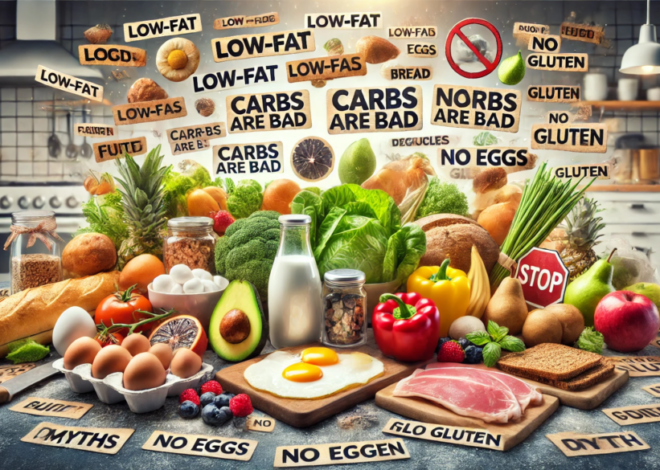
The Truth About “Cheat Days”: Do They Help or Hurt Your Diet?
Cheat days myth often misleads individuals about their diet’s effectiveness. While some believe indulging periodically helps maintain motivation, research reveals contrasting views. A Psychology Today article notes that regular cheat days might disrupt metabolic processes, posing long-term diet challenges. This post will explore whether cheat days truly support weight loss or if they potentially damage a structured eating plan. Understanding the impact of cheat days can empower better dietary choices and commitment to health goals.
Understanding the Concept of Cheat Days
Cheat days have become a popular element in diet plans, offering a break from the usual restrictions. They provide a psychological reset and can help maintain long-term dietary adherence. Understanding the concept and how to effectively incorporate cheat days can enhance your dieting journey.
What Are Cheat Days and How Do They Work?
Cheat days are pre-planned breaks from dietary restrictions, allowing indulgence in otherwise off-limit foods. The idea is to enjoy favorite treats without feeling guilty, which can help prevent feelings of deprivation. Typically, cheat days occur once a week or month. When done correctly, they can fit into a balanced diet plan, helping to maintain motivation and satisfaction.
These days work by managing cravings and providing mental relief from rigorous dieting. However, it’s crucial to not turn them into uncontrolled binges. Instead, plan your cheat days with specific meals or treats in mind. This approach ensures that you enjoy your indulgences without derailing your diet.
The Psychological Benefits of Incorporating Cheat Days
Cheat days offer significant psychological benefits. They can reduce feelings of restriction and improve overall mental well-being. Knowing that a cheat day is coming up can decrease the chances of impulsive eating. It helps in managing cravings and reduces feelings of guilt associated with eating forbidden foods.
Moreover, cheat days increase motivation. They provide something to look forward to, which can make sticking to a diet easier. This structured approach to indulgence supports mental health by balancing strict dieting with occasional flexibility.
Cheat Days as a Tool for Diet Adherence
Incorporating cheat days strategically can enhance diet adherence. They break the monotony of strict diets, preventing burnout and loss of motivation. By allowing planned indulgences, cheat days help maintain a healthy relationship with food.
This method also aids in the development of self-control. Knowing that you can enjoy certain foods at a designated time teaches patience and planning. In the long run, it can lead to a more sustainable and enjoyable dietary lifestyle.
The Impact of Cheat Days on Weight Loss
Cheat days can influence the weight loss journey in various ways. They may affect metabolic rate and caloric balance, impacting overall progress. Understanding these effects is crucial to using cheat days effectively while pursuing weight loss goals.
How Cheat Days Influence Metabolic Rate
Cheat days can positively impact the metabolic rate by temporarily boosting it. When calorie intake increases during a cheat day, the body’s metabolism accelerates to process the extra energy. This phenomenon can prevent the metabolic slowdown often seen with prolonged dieting.
Moreover, the increase in calories can enhance levels of hormones like leptin. Leptin plays a key role in regulating energy balance and hunger, helping to maintain a more active metabolic state. This process may aid in overcoming weight loss plateaus, making cheat days a strategic tool when used wisely.
Balancing Caloric Intake and Cheat Meal Frequency
Striking the right balance between caloric intake and cheat meal frequency is crucial for weight loss. Overindulgence on cheat days can negate the calorie deficit achieved through the week. Therefore, moderation is key.
Consider using cheat meals instead of entire cheat days. This approach allows for indulgence without drastically increasing calorie intake. Planning ahead and keeping track of calories consumed can help maintain this balance and support ongoing weight loss efforts.
Pros and Cons of Cheat Days for Sustainable Weight Loss
Cheat days offer numerous advantages, including psychological relief and metabolic benefits. They can make dieting more sustainable by reducing feelings of deprivation. However, there are also drawbacks to consider.
Potential cons include the risk of overeating and losing control. If not carefully managed, cheat days can slow weight loss progress. It’s important to evaluate how cheat days fit into your overall dietary goals and adjust accordingly.
Creating a Balanced Diet Plan with Cheat Days
Incorporating cheat days into a balanced diet requires careful planning. Setting realistic goals, minimizing overindulgence, and tailoring the plan to individual needs can lead to successful integration.
Setting Realistic Goals and Expectations for Cheat Days
Setting realistic goals is essential when planning cheat days. Understand that the purpose is to enjoy food without guilt while staying on track with your diet. Be clear about what you wish to achieve from cheat days, whether it’s satisfying cravings or breaking monotony.
Having clear expectations helps in maintaining control. Instead of using cheat days as an excuse to binge, view them as a reward for staying disciplined. This mindset ensures that cheat days remain a beneficial component of your diet plan.
Strategies for Minimizing Overindulgence During Cheat Days
Avoiding excessive indulgence on cheat days is crucial for maintaining progress. Start by planning your meals ahead, focusing on portion control. Choose foods that satisfy cravings without leading to a caloric surplus.
Another strategy is to remain mindful while eating. Concentrate on savoring each bite, which promotes satisfaction with smaller quantities. Additionally, staying active on cheat days can help balance the increased caloric intake, supporting weight management.
Customizing a Cheat Day Plan Based on Individual Dietary Needs
Customizing your cheat day plan is vital for aligning with personal dietary needs. Consider factors like dietary restrictions, fitness goals, and food preferences. Tailor cheat days to complement your overall nutrition strategy.
Personalization increases the effectiveness of cheat days. For instance, if your goal is muscle gain, focus on high-protein treats. If weight loss is the aim, opt for lower calorie indulgences. A customized approach ensures that cheat days contribute positively to your diet journey.
Conclusion
Cheat days can undermine long-term weight loss goals by encouraging overconsumption. They may lead to a cycle of restrictive eating followed by excessive indulgence, which can be mentally taxing. Cheat days can hinder the establishment of sustainable, healthy eating habits. They may also cause feelings of guilt and anxiety, impacting mental well-being. Rather than relying on cheat days, adopting a balanced and flexible dietary approach is suggested for better success.
FAQ
What is the cheat day myth in dieting?
The cheat day myth suggests that taking a day off from strict dieting can boost metabolism and break weight loss plateaus. However, the body’s response to calories varies, and not everyone experiences the same benefits.
Are cheat days really beneficial for weight loss?
Cheat days might offer psychological relief but can hinder progress if not controlled. While they may boost motivation, consistent overeating can offset calorie deficits and stall weight loss efforts.
How can cheat days affect metabolism?
Some believe cheat days can enhance metabolism by increasing leptin levels, a hormone that regulates hunger. However, the effect is usually temporary and less significant than sustained calorie control.
What are the psychological impacts of having cheat days?
Cheat days can provide a mental break from dieting, potentially reducing stress and improving adherence. Yet, they may also lead to feelings of guilt or failure if overindulgence occurs.
Can cheat days lead to overeating and binge eating?
There is a risk. Without mindful control, cheat days can spiral into binge eating, disrupting eating habits and leading to weight gain. Planning and moderation are essential to avoid this pitfall.
How to incorporate cheat days without hindering fitness goals?
To include cheat days wisely, set clear limits on portions and frequency. Focus on nutrient-dense foods, and balance indulgences with physical activity. This approach helps maintain progress while enjoying occasional treats.











